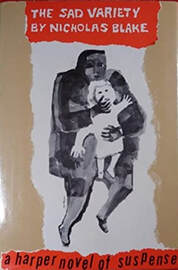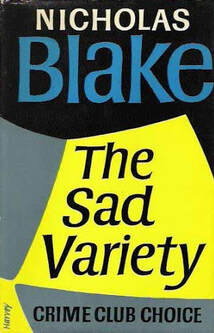
With the moral and commercial outcome predestined – and perhaps I should be fair and note that nearly all of the 1950s and early ‘60s U.S. and UK-produced spy stories, even the James Bond books, are of the good-beats-evil, happy ending variety – it is interesting (if not especially appealing) to see where Blake allows the rawness of “realism” to creep in. For starters, there’s a sprinkling of profanity on the page, mostly coming from the generically sadistic Russian baddie Petrov. Coming across the occasional four- and five-letter swear words here, their inclusion feels anachronistic, as does the villain’s vulgar threats of rape and body mutilation to keep his enemies/victims in line. Blake also has Petrov blackmail one of his reluctant helpers, a self-loathing male college instructor, with photographs of a homosexual tryst; it’s a detail that would surely have been handled differently, if at all, in the more implicit era of puzzle mysteries 30 years earlier.

 RSS Feed
RSS Feed